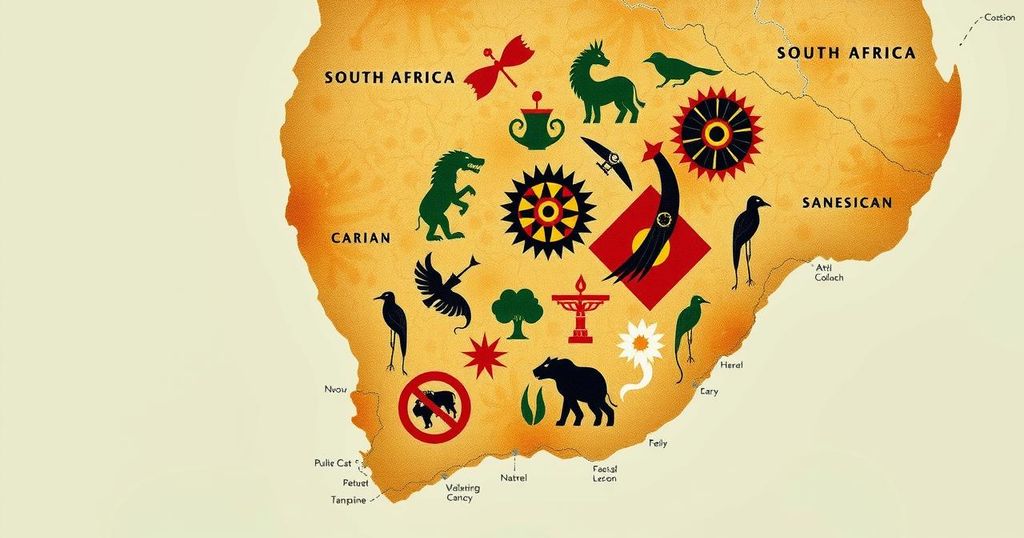Russia’s Anti-Colonial Narrative: Resonance in South Africa’s Public Opinion

Russia’s historical narrative in South Africa is rooted in Cold War sympathies, influencing contemporary opinions amid the Ukraine conflict. This stems from Russia’s anti-imperialist involvement during the 19th and 20th centuries, fostering relationships with African nations, particularly the ANC. Despite underlying complexities, Russia maintains support in Africa by addressing local needs and challenging Western influence.
In South Africa, Russia’s anti-colonial narrative has garnered historical sympathy, tracing back to the Cold War and before. Notably, in 1986, Sue Dobson, a young white woman from Pretoria, became a spy for the African National Congress (ANC) and received specialized training in Moscow. Her mission encompassed surveillance techniques and evasion strategies while participating in exercises to identify followers in diverse environments.
Upon returning to South Africa, Dobson worked in the apartheid regime’s propaganda sector but eventually fled when authorities uncovered her family’s ties to the ANC. This escape was aided by Soviet diplomats, propelling her to the UK. Dobson, now not commenting on Russia’s current actions in Ukraine due to a lack of nuance, highlights a unique support for Russia emerging from Africa, where governmental stances differ significantly from Western condemnation.
By 2022, only half of African states condemned Russia at the United Nations after its invasion of Ukraine, attributing this to Russia’s historical championing of anti-imperialism. The roots of this perception can be traced to the Russian Empire’s sidings during the 19th century. Unlike European powers exploiting Africa, Russia supported Orthodox Christians in Ethiopia during the Italo-Ethiopian War by providing military assistance.
However, these narratives sometimes exaggerate Russia’s contributions. Ukrainian historian Oleksandr Polianichev argues that Russian involvement in Ethiopia was overstated, citing Nikolai Leontiev’s self-aggrandizing accounts as a pivotal example demonstrating the limits of actual Russian support during the conflict.
Although the Russian Empire could not feasibly colonize Africa due to its naval weaknesses, its Cold War strategies involved assisting nations like Angola and Egypt against Western-backed factions. Such support was driven by ideological motives but also aimed at strengthening trade relations, with the Soviets reaping raw materials in return for arms and aid, thus enhancing their global standing.
The opening of Patrice Lumumba University in Moscow during the 1960s brought thousands of African students to Russia, offering educational opportunities despite some experiencing racism, which contradicted Soviet anti-colonial propaganda. Despite this, many students recognized the benefits of Soviet education and continued to attend.
The ANC, now the ruling party in South Africa, maintains a neutral stance on the current Russia-Ukraine conflict while holding significant historical ties with the Soviet Union. Senior members of the ANC trained in the USSR, fostering a connection that informs contemporary political sentiment. Grassroots support for Russia is observable, with pro-Russian rallies challenging Ukrainian voices,
Additionally, Russia’s assistance extends to debt forgiveness and military support in various African nations, further solidifying its influence. The resonance of Russia’s anti-colonial narrative rests on its alignment with global southern political objectives and its current opposition to Western powers. This conditional acceptance suggests that should political contexts shift, Russia’s past may resurface critically against its present stance.
In summary, Russia’s historical and ideological ties with South Africa contribute to a sympathetic view among certain sectors, especially those linked to the ANC. The layers of this relationship encompass military support during the Cold War, the complexities of early 20th-century anti-imperialism, and contemporary geopolitical dynamics. While Russia positions itself as a proponent of anti-colonialism, the implications of this narrative may vary depending on shifting political landscapes.
Original Source: www.aljazeera.com







